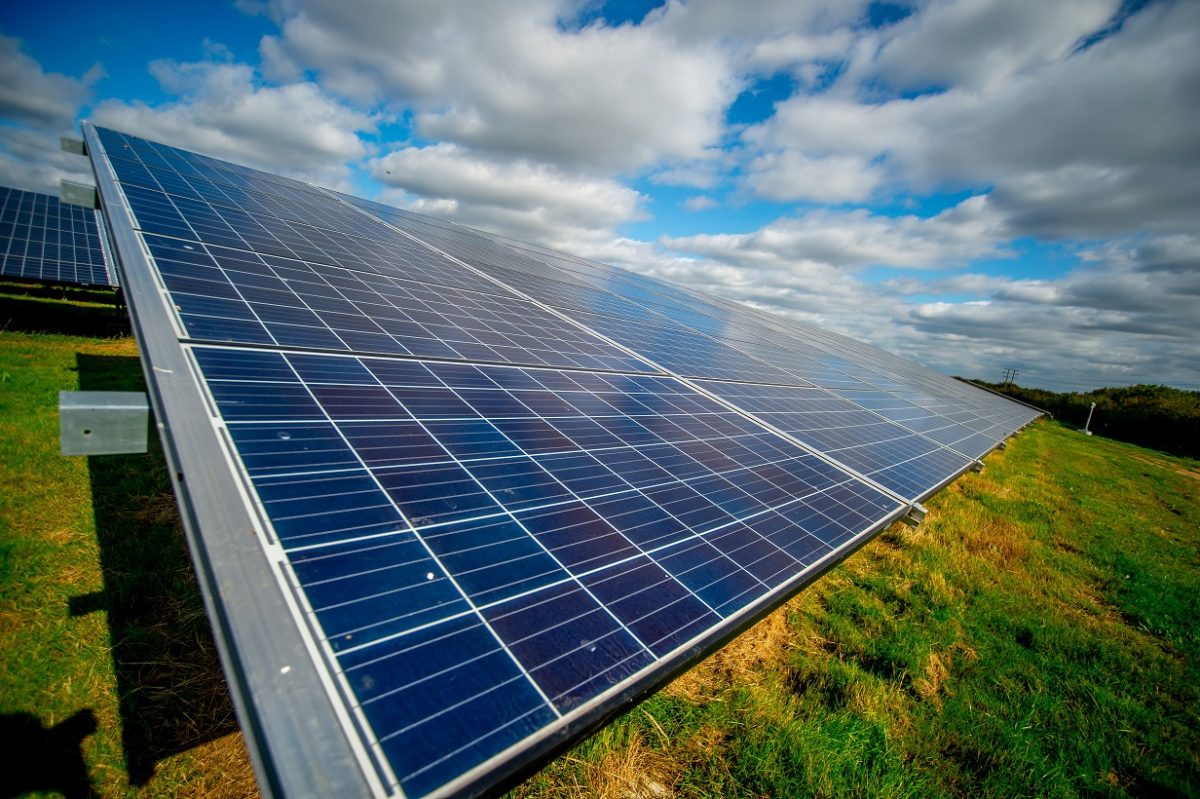Firstly, the need to focus on how the nation combats climate change and achieves ‘Net Zero’ will feature ever more prominently, as the Prime Minister’s speech last month indicated. An important element of this jigsaw is the future of clean energy.
Secondly, the size and shape of the economy – always a major issue – will remain a point of debate as the transition period ends and the United Kingdom seeks to re-engineer its global trade and export industries. At the same time, ta strong focus on seeking to remain economically resilient to weather the pandemic storms is required.
Both the trajectory of clean energy and the shape of the economy are crucial for solar power. In terms of the importance of clean energy; wind and solar are of increasing significance when it comes to generating carbon free electricity.
The future of clean energy
We are living in unprecedented times, with the imperative of addressing climate change, the opportunities yielded by clean energy and de-carbonizing whole swathes of the economy, and society, all central issues today.
Tackling climate change calls for comprehensive action in transport, buildings, consumer behavior and education – to name just a few areas.
The United Kingdom has a key role to play. As Prime Minister Boris Johnson recently stressed, the ‘green industrial revolution’ has great potential. Furthermore, Scotland’s Glasgow will host the 26th UN Climate Change Conference of the Parties (COP26).
This is a major opportunity to show leadership on the environmental agenda. In the preceding months, much work will be undertaken by politicians, campaigners and industry seeking to maximize the significance of that gathering.
Meanwhile, this autumn, the government tells us we can expect to see a new Energy White Paper, and there are also hints of an updated Industrial Strategy. These are all opportunities for a comprehensive reflection on our clean energy composition and to address any gaps.
On the need to reach ‘Net Zero’, U.K. cross party commitment and consensus – with some exceptions – is clear on the need for action; yet amidst all the fine rhetoric and buzzwords, hard decisions need to be made. For example, is the 2050 date to achieve ‘Net Zero’ too cautious? Is there sufficient emphasis on a broad mix of renewable energy sources when the government considers clean energy?
The direction of the economy
The economy suffered recession and uncertainty, and then it has had to respond to the enormous challenge of Covid-19. This meant that in August GDP was 9% lower than it was prior to the pandemic.
The United Kingdom has left the EU, and soon the transition period will end. There is no need to repeat the over wrought and contentions of this debate. We must, however, ask how can we harness our energy and skills, and make the new trading environment work.
Given the challenges and the direction of travel the nation is taking, the focus on global trade and the primacy on exporting becomes ever more pertinent.
The future of UK solar power
The increased focus on creating green jobs, green enterprises and rebuilding the economy, all impact on the solar power sector. By pursuing the vision of a decarbonized economy, we would be shooting ourselves in the foot if we didn’t back solar, since it can play a major part in a future renewables mix and be part of an effort to renew our economic vigor.
Solar is getting the ‘thumbs up’ from bodies such as the Internal Energy Agency, which stated in its recent World Energy Outlook Report 2020 that, “Renewables grow rapidly in all our scenarios, with solar at the centre of this new constellation of electricity generation technologies. Supportive policies and maturing technologies are enabling very cheap access to capital in leading markets. With sharp cost reductions over the past decade, solar PV is consistently cheaper than new coal- or gasfired power plants in most countries, and solar projects now offer some of the lowest cost electricity ever seen.”
Given the need for a supportive environment, more positive references to solar power from the U.K. government must be welcomed.
The private sector should also be enabled to play a role in creating prosperity, jobs and innovation. The role of legislation and policy is key in setting the right conditions and standards to achieving this.
Recent history tells us that political policy has a material impact on industry. For example, witness the direction European nations are being guided in through EU policies like the Renewable Energy Directive and National Energy and Climate Plans.
What needs to change?
The interest in the environment is sky-high and the ball is in the Government’s court. It does appear to have ambition for clean energy and this may well accelerate in the run up to Cop 26. Yet this can be broadened by championing solar and onshore wind.
More intentional and pro-active steps are also needed to boost the solar sector. There have been some positive developments, with the openings for solar in the Contracts for Difference auction round next year, for example.
However, more specific measures must also be taken. These include:
- The establishment of a Sector Deal for solar power, such as the one for wind;
- Targeted support for small companies operating in the sector;
- Government-appointed ‘Solar Power Champions’; and
- The development of an education program explaining the benefits of solar power for businesses and households, and providing much needed clarity and remove any misunderstanding.
Let’s keep the debate on clean energy inclusive of all viable technologies. Solar power must not be left out of the equation.
The views and opinions expressed in this article are the author’s own, and do not necessarily reflect those held by pv magazine.
This content is protected by copyright and may not be reused. If you want to cooperate with us and would like to reuse some of our content, please contact: editors@pv-magazine.com.



By submitting this form you agree to pv magazine using your data for the purposes of publishing your comment.
Your personal data will only be disclosed or otherwise transmitted to third parties for the purposes of spam filtering or if this is necessary for technical maintenance of the website. Any other transfer to third parties will not take place unless this is justified on the basis of applicable data protection regulations or if pv magazine is legally obliged to do so.
You may revoke this consent at any time with effect for the future, in which case your personal data will be deleted immediately. Otherwise, your data will be deleted if pv magazine has processed your request or the purpose of data storage is fulfilled.
Further information on data privacy can be found in our Data Protection Policy.